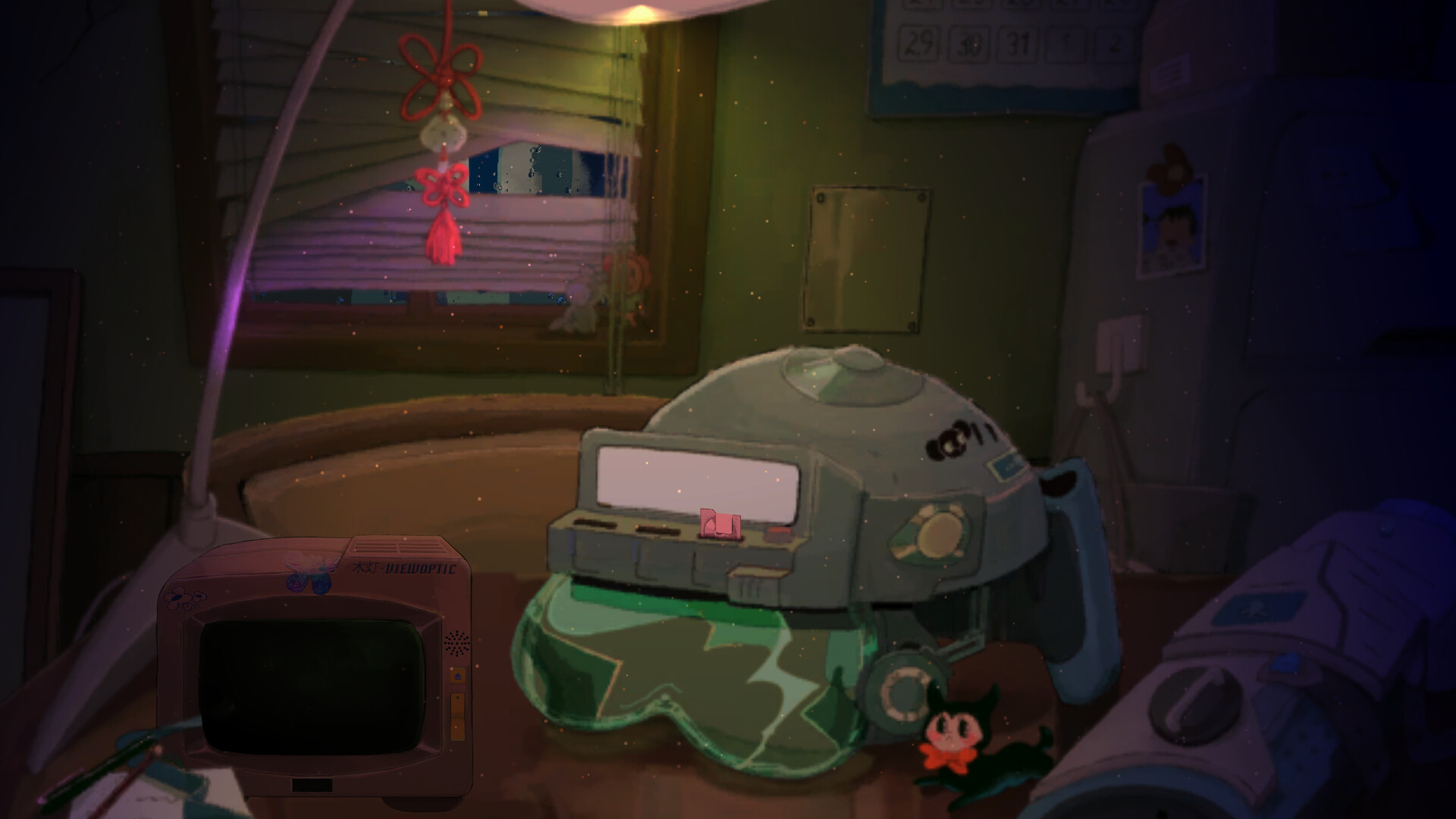
Nanny is in theaters Nov. 23 and on Prime Video Dec. 16.
Something the horror genre excels at is bridging cultures through a well told native fairytale or folktale. For humans, fear is a universal connector and our regional stories and creatures can help define, and personify, our cultural bête noire with potency. Director/writer Nikyatu Jusu attempts to do just that with Nanny, a contemporary immigration story centering on a Senegalese single mother, Aisha (Anna Diop), trying to build a new life in New York City. Her quiet suffering over the separation from her young son manifests in her everyday life as increasingly frequent nightmares and disturbing visions filled with images and creatures from her native culture. While visually arresting and featuring a star-making performance by Diop, Nanny ultimately is a hodge-podge of too many ideas that never quite converge into one succinct meditation.
As a relatively new transplant from Senegal to New York City, Aisha lives with an aunt as she starts saving enough money to fly her beloved young son, Lamine (Jahleel Kamara), over to live with her. Hoping to accelerate the process, she takes a job as a nanny for an affluent white couple, Amy and Adam (Michelle Monaghan and Morgan Spector). They have one young child, Rose (Rose Decker), who Aisha is hired to care for in their well-appointed home. Amy is a fretful helicopter parent with a binder full of directives, rules, and activities for Aisha to follow to the letter. There are even inferences of existing behavioral problems for Rose, which seem to clear right up under the attention and compassionate kindness that Aisha brings with her skills as a career teacher.
While Aisha easily bonds with Rose, the job exacerbates the distance from her son and doesn’t help the problematic issues that Amy and Adam bring into her life. Late pay, thoughtless last minute requests, and the demands made by an increasingly erratic Amy seem to trigger water-related nightmares and daylight moments of zoning out for Aisha which become more and more unnerving. It’s only when she tentatively allows herself to plant tiny roots in her new town, by dating doorman and fellow single parent Malik (Sinqua Walls), that she meets his grandmother Kathleen (Leslie Uggams), who tells her about shared African folklore and mythology relating to water and mermaid-like creatures.
A woman stuck between two worlds, Aisha finds herself metaphorically drowning under the stresses induced by her work, the inconsistent communication back home due to her flighty cousin caring for Lamine, and the dreams which invade her psyche and perhaps her ability to care for Rose. Jusu and cinematographer Rina Yang are creative with their camera, utilizing intimate frames to show the smallness of Aisha’s new reality juxtaposed against the almost cavernous coldness of the home she has to spend most of her time existing within. The apartment is essentially rendered into a haunted house, which earns some genuine chills and a vibe of unease that permeates the piece effectively.
Nanny excels as a character piece and a showcase for the many talents of Jusu and Diop.
Perhaps more interesting is their refusal to portray Aisha in the frame, or in most spaces, as a victim, which is refreshing and really sets the film apart. Yes, she can be melancholy and frustrated about where she is in life. But she’s also shown to be joyful with her local family, while being resourceful and clear-eyed about the kind of people she works for. She is many things, including a caring mother, an outspoken advocate for herself and Rose, and a beautiful woman who rightfully enchants Malik. Their choice to not diminish her makes Aisha’s spells more intriguing since we know there’s a competency there that is being overwhelmed by something beyond her control.
Unfortunately, when Jusu tries to distill the disparate parts of Aisha’s life into a satisfying ending, those elements prove to be a bit too scattered and undeveloped to coalesce into a finely tuned, finished thought. And for a film that gives ample space for both the concrete and the metaphysical to play out, the ultimate climax feels jarringly rushed. While it gets points for subverting expectations, there’s an hasty expeditiousness in wrapping it up that doesn’t match what comes before. But even with that issue, Nanny excels as a character piece and a showcase for the many talents of Jusu and Diop.






